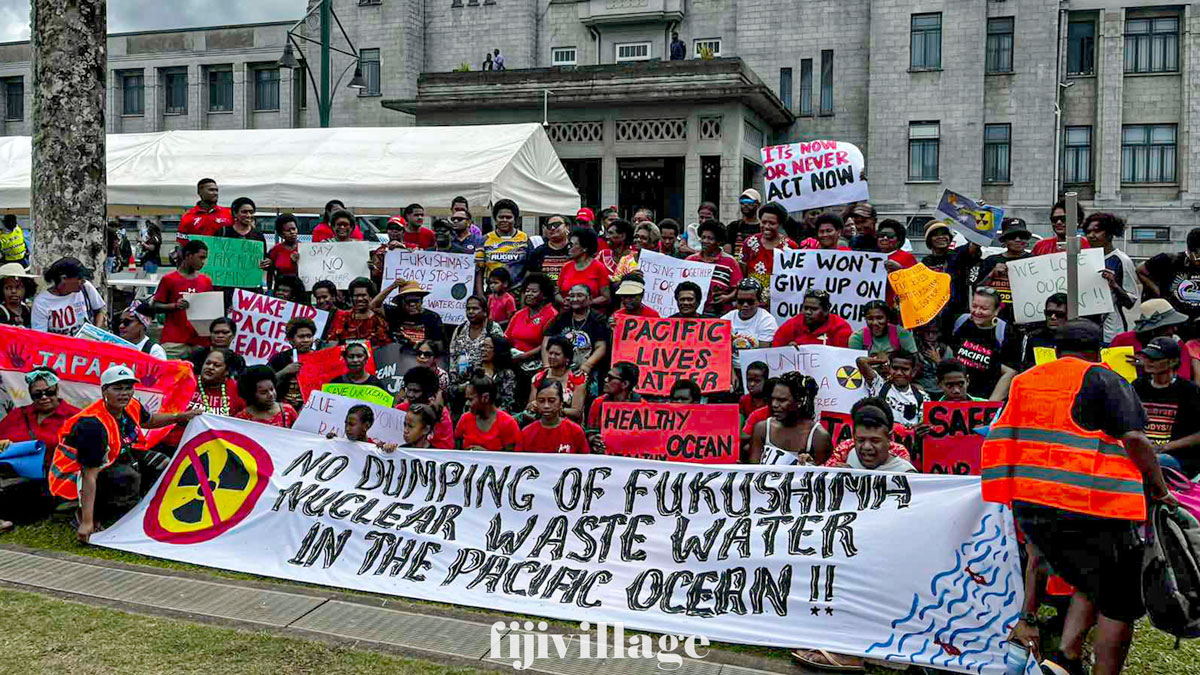
Japan take your money, take your waste, we don’t need it. Let us protect our children and protect our ocean.
These were the chants of hundreds of protesters that gathered to protest against the Fukushima treated nuclear wastewater dumping while marching from the Flea Market to Albert Park this morning.
People from all walks of life gathered in the solidarity march this morning.
During the march, Pacific Conference of Churches' General Secretary Reverend James Bhagwan said Japan thinks the Pacific Ocean is the cheapest option to dump their waste.
Reverend Bhagwan says if Japan thinks that the wastewater is safe, then why don't they dump it into their own backyard.
He says the politicians that are making the decisions today won't be here to experience the aftermath of the decisions in the next 40 to 50 years time.
The protesters have also called on the government and Pacific leaders to hear their voices and plea.
The people's rally is currently underway at Albert Park.
Stay with us for developments.
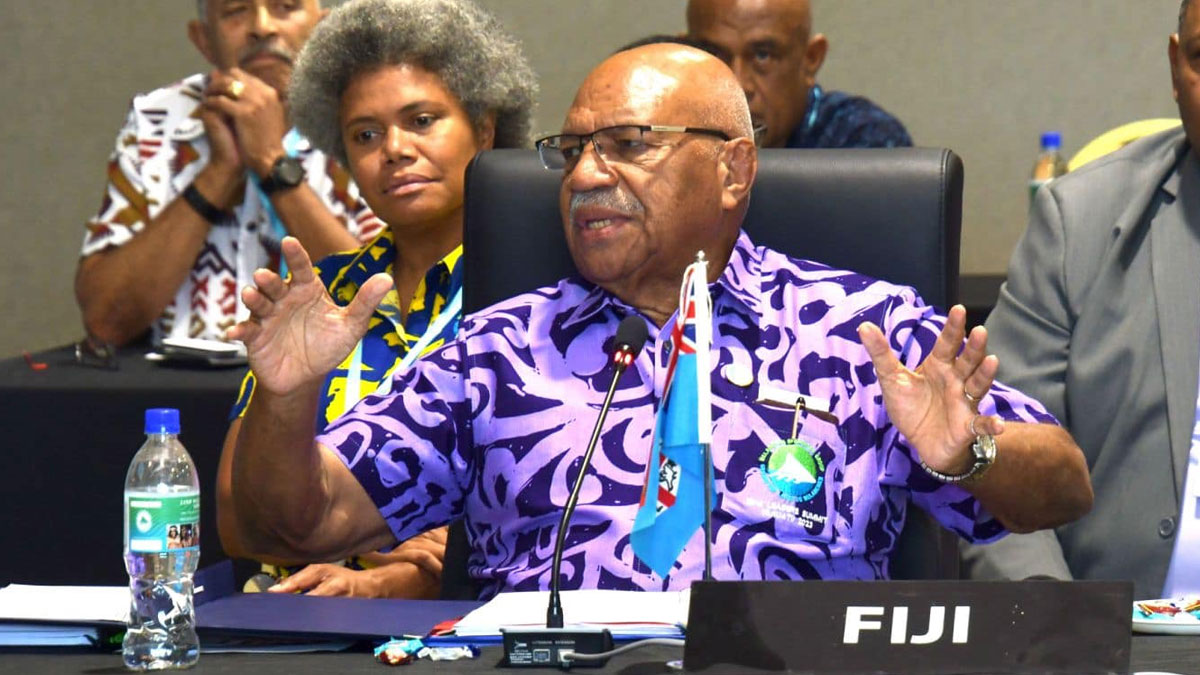
Prime Minister, Sitiveni Rabuka says while they regret the fact that Japan has gone ahead to start discharging the treated nuclear wastewater before the Pacific Islands Forum scientific team have come back, Japan is working on the results carried out by the International Atomic Energy Agency.
Speaking after 22nd Melanesian Spearhead Group Leaders’ Summit in Vanuatu, Rabuka says unfortunately yesterday was D-day for Japan to discharge the treated nuclear wastewater from Fukushima, and they have started.
Rabuka says based on the International Atomic Energy Agency report, he made his unilateral statement, and it ruffled a few feathers in his own caucus, and his own coalition which was to be expected because the Fijian parliament had passed a motion to ask Japan not to discharge the treated nuclear wastewater into the Pacific.
The Prime Minister says the Pacific Islands Forum Leaders Retreat earlier this year reiterated that position, and stressed the continuing monitoring of the discharge of the water.
Rabuka goes on to say that another concern is the bigger industrial powers are not serious about the carbon emissions target.
He says for us in the Pacific, it is about our survival to achieve the emissions target.
Rabuka says it is included in the MSG Leaders’ communique and sent to the rest of the world, and this will be discussed in the next COP meeting. He adds that part of the resolution on climate change was the growing concern for the discharge of the treated nuclear wastewater from Fukushima.
Rabuka says they are mindful of the Rarotonga Agreement that we would like to keep the Pacific a nuclear free zone.
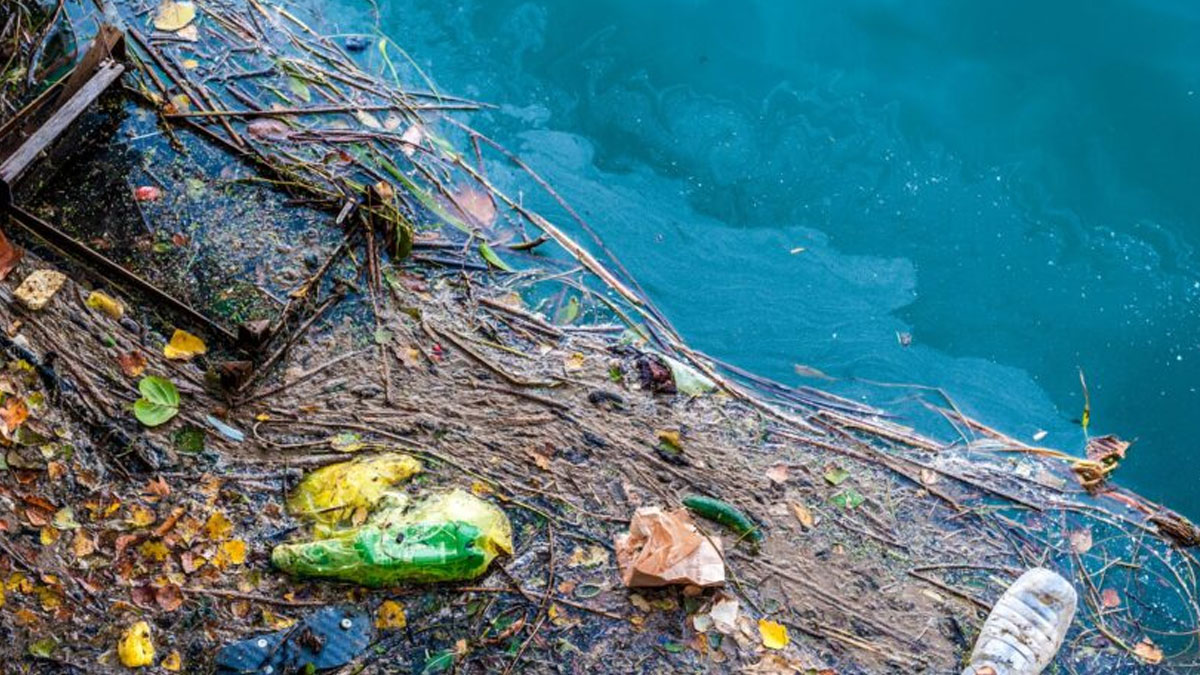
Deputy Prime Minister, Minister for Finance and the Leader of the National Federation Party, Professor Biman Prasad has today stressed that the government stands by the approved parliamentary motion stating the Pacific Ocean should not be seen as an easy and convenient dumping ground for unwanted and dangerous materials and waste including nuclear wastewater that other larger nations produce and do not want to use in their own ecosystem.
While calls continue for Fiji and the regional partners to reject Japan’s plan to discharge the treated Fukushima nuclear wastewater starting from as early as tomorrow, Professor Prasad says everyone including the Prime Minister have agreed to the motion.
Professor Prasad says there will be differing opinions as to the degree of the impact but as a government and a parliament, that motion expressed deep concern about the dumping of any kind of waste including nuclear waste in the Pacific.
While moving the motion in parliament earlier this year, Deputy Prime Minister, Manoa Kamikamica said the Fijian government reaffirms its opposition to Japan's plan to discharge nuclear-contaminated wastewater into the Pacific Ocean, saying that the region is not a dumping ground for countries like Japan to release its nuclear waste.
Kamikamica said that we, as the Pacific, cannot continue to be the dumping ground for the bigger nations.
He said the social and economic impact of this irresponsible behaviour is catastrophic, particularly on our vulnerable communities.
Kamikamica said if Japan's decision to discharge its treated water from the Fukushima Daiichi Nuclear Power Plant into the Pacific is so safe, why can't they use it in their own farms, and in their own country.
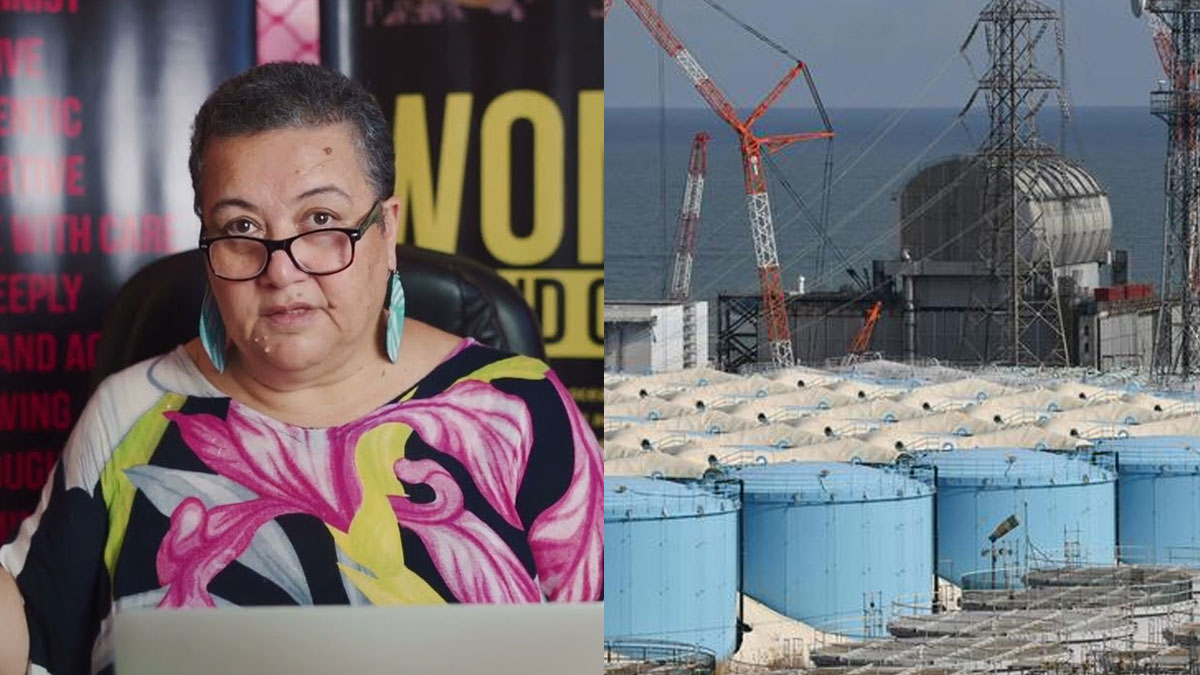
We are not satisfied that truly independent assessments have been thoroughly done in relation to Japan’s planned discharge of the 1.3 million metric tonnes of ‘treated’ nuclear wastewater into the Pacific Ocean.
That is the clear statement to the people and leaders by DIVA For Equality Founder and co-organiser of the protest march and people’s rally against the Fukushima nuclear wastewater dumping, Noelene Nabulivou.
Nabulivou says the Pacific Conference of Churches, youth led organisations like Alliance for Future Generations, Fiji Women’s Rights Movement, DIVA For Equality and Soqosoqo Vakamarama amongst others will be part of the solidarity people’s rally in Suva for the health of the Pacific Ocean from 10am this Friday.
She says the action being taken by Japan is very concerning.
Nabulivou says it is clear that independent assessments have not been done on how it will affect the people in the Pacific.
The protest march starts from the Suva Flea Market at 10am Friday, and a people’s rally will be held at Albert Park after the march on the same day.
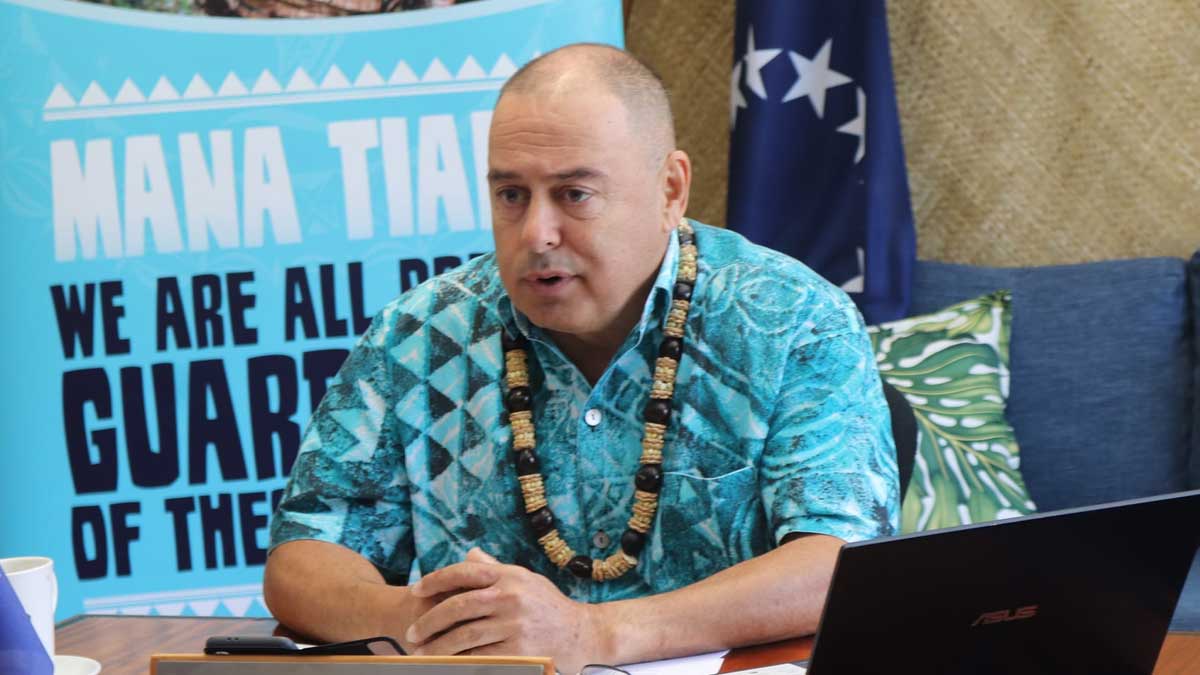
As related to the complex case of the Japan Fukushima nuclear wastewater issue, Pacific Islands Forum Leaders have continued to prioritise the importance of “international consultation, international law, and independent and verifiable scientific assessments”.
Those are the words of the Forum Chair and Cook Islands Prime Minister, Mark Brown as calls continue for the Pacific leaders to speak out against the planned treated nuclear wastewater discharge by Japan from tomorrow.
Brown says given our Blue Pacific region’s ongoing nuclear testing legacy, and our collective commitment to the South Pacific Nuclear Free Zone - also known as the Treaty of Rarotonga – the Forum will always exercise the highest levels of caution on all nuclear related issues.
He says the decision by the Government of Japan to request Tokyo Electric Power Company (TEPCO) prepare for release the treated water currently stored at the damaged Fukushima Daiichi nuclear power plant into the ocean, with the first treated water set to be discharged on or after tomorrow, comes after over 28 months of consultations, including at the highest political level, and at the scientific level between the Pacific Islands Forum and the Government of Japan and Forum and the International Atomic Energy Agency.
The Forum Chair says they note the IAEA’s recommendations that the plans by Japan are consistent with international nuclear safeguards and that impacts on the environment and human health are negligible.
Brown says at the same time, they appreciate the advice rendered by the independent Forum panel of scientific experts.
He says it is not lost on him that there remains diverging views and responses in the international community, and within our Blue Pacific region.
Brown says as Chair of the Pacific Islands Forum, he is committed to maintaining ongoing dialogue with the Government of Japan and the IAEA on this matter.
He says as custodians of our Blue Pacific Continent, and in recognition of the transboundary and transgenerational nature of this issue, it is incumbent on all of us to ensure the highest level of due diligence and ongoing monitoring of the planned discharge.
Brown says in this respect, and while they note the recent decision announced by Japan on the release date, Forum Leaders will as a matter of priority consider latest developments in their next meeting, as will Foreign Forum Ministers when they meet next month.
He says the Forum Secretariat will continue to facilitate ongoing dialogue with the Government of Japan and the IAEA to ensure that Forum Members are privy to the latest information and updates.
The Forum Chair has released this statement after continuous questions also being raised by fijivillage News to the Forum Secretariat. We are also trying to find out if other independent assessments are being done regarding the planned discharge.
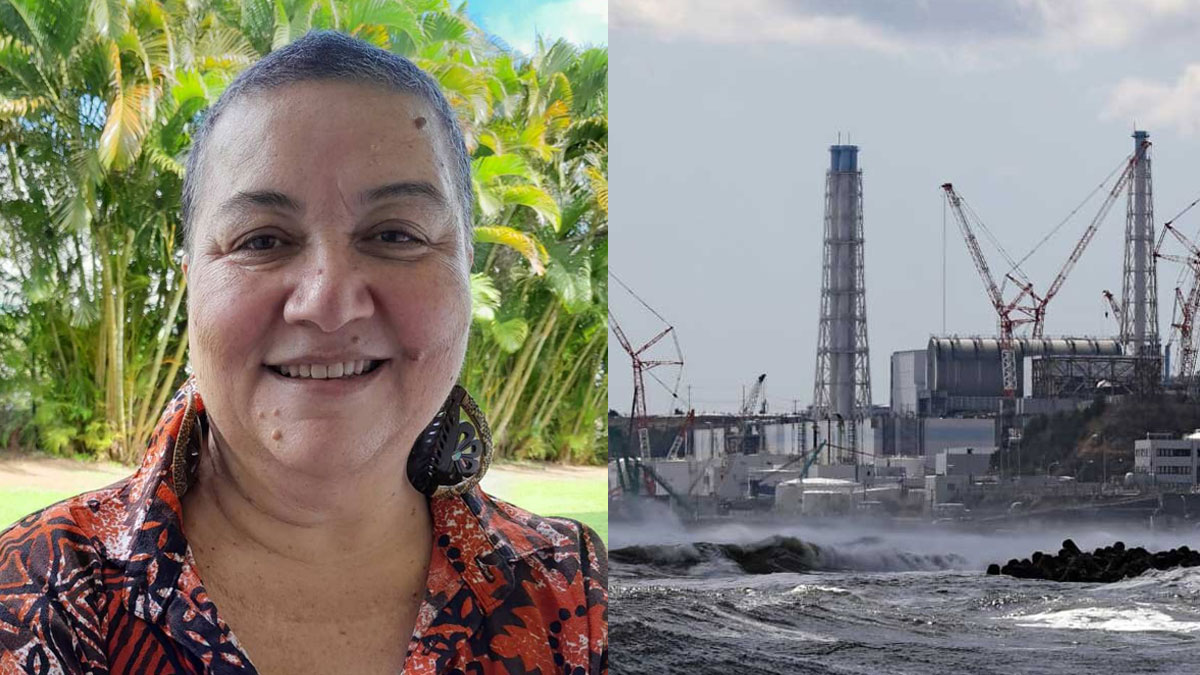
The Fiji NGO Coalition On Human Rights is now making a desperate call to the Fijian government, and other Pacific Islands to call for international action to stop Japan’s planned dumping of the Fukushima nuclear wastewater – which is expected to start as early as this Thursday.
fijivillage News has received confirmation that the NGO Coalition has received a permit to have a protest march on Friday against the planned dumping.
The march will be held from the Suva Flea Market to Albert Park at 10am. This will be followed by a people’s rally at Albert Park.
DIVA For Equality Founder co-organiser, Noelene Nabulivou says the Pacific Conference of Churches, youth led organisations like Alliance for Future Generations, Fiji Women’s Rights Movement, DIVA For Equality and Soqosoqo Vakamarama amongst others will be part of the solidarity people’s rally for the health of the Pacific Ocean.
Nabulivou says it is clear there is widespread support for a stronger stance from our Pacific leaders.
She also says this is something that does not only concern this generation but countless generations after us, and they are also concerned that the dumping is now being rushed by Japan.
Just as the Fijian authorities issue the permit for the protest march and rally, reuters reports that Japan will start releasing more than 1 million metric tonnes of treated radioactive water from the wrecked Fukushima nuclear power plant this Thursday, putting into motion a plan that has drawn strong criticism from China.
The plan, approved two years ago by the Japanese government as crucial to decommissioning the plant operated by Tokyo Electric Power Company (Tepco), has also faced criticism from local fishing groups, who fear reputational damage and a threat to their livelihood.
Japanese Prime Minister, Fumio Kishida said today that he has asked Tepco to swiftly prepare for the water discharge in accordance with the plan approved by the Nuclear Regulation Authority, and expect the water release to start on August 24th, weather conditions permitting.
The announcement comes a day after the Japanese government said it had won "a degree of understanding" from the fishing industry over the release of the water, even as a fishing group said it still feared the reputational damage would ruin livelihoods.
Kishida said he promises that they will take on the entire responsibility of ensuring the fishing industry can continue to make their living, even if that will take decades.
Japan has said that the water release is safe.
The International Atomic Energy Agency (IAEA), the U.N. nuclear watchdog, greenlighted the plan in July, saying that it met international standards and that the impact it would have on people and the environment was "negligible".
Some neighbouring countries have expressed scepticism over the safety of the plan, with Beijing emerging as the biggest critic.
Foreign ministry spokesman Wang Wenbin said in July that Japan had shown selfishness and arrogance, and had not fully consulted the international community about the water release.
China has banned seafood imports from 10 prefectures in Japan, including Fukushima and the capital, Tokyo.
Seafood imports from other prefectures are allowed but must pass radioactivity tests and have proof they were produced outside the 10 banned prefectures.
South Korean activists have also protested the plan, although Seoul has concluded from its own study that the water release meets international standards and said it respects the IAEA's assessment.
Pacific Island nations have been split over the matter, given their own history of being nuclear testing sites for the United States and France.
Prime Minister, Sitiveni Rabuka, has said that he backed the IAEA report, but acknowledged that the issue is controversial in the Pacific Islands.
Kishida says he believes an "accurate understanding" of the matter was spreading in the international community.
Japan says the water will be filtered to remove most radioactive elements except for tritium, an isotope of hydrogen that is difficult to separate from water.
It says the treated water will be diluted to well below internationally approved levels of tritium before being released into the Pacific.
The water was used to cool the fuel rods of Fukushima Daiichi after it melted down in an accident caused by a huge tsunami in 2011 that battered Japan's eastern coast.
A Japanese official said the first test results of the seawater after the discharge may be available at the start of September.
Japan will also test fish in the waters near the plant, and make the test results available on the Agriculture Ministry's website.
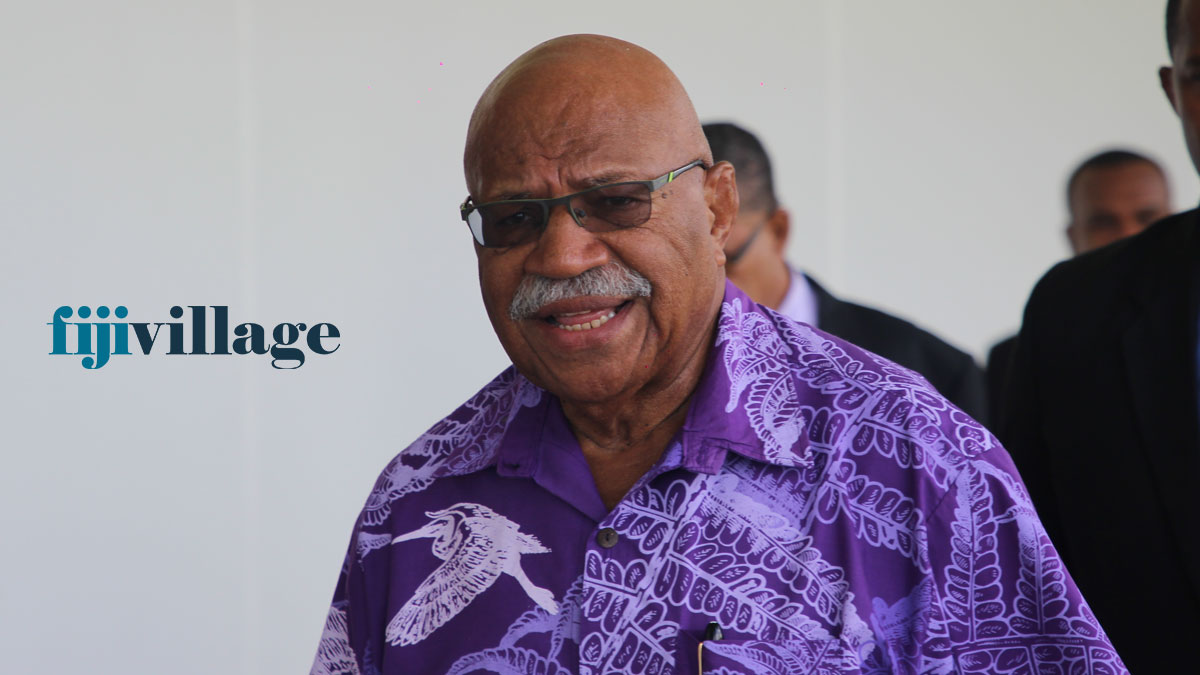
Prime Minister, Sitiveni Rabuka says the NGOs that are against discharging of treated wastewater from the Fukushima Daiichi Nuclear Power Plant in Japan into the Pacific Ocean, can have consultations with the scientists.
When approached by fijivillage News on Fiji’s stand, Rabuka says he does not need to have consultations with the NGOs, and the NGOs can have consultations with the scientists.
When asked on whether he stands by his comments, Rabuka says he does, and did not want to comment further.
While speaking during the Pacific Small Islands Developing States High-Level Dialogue On Climate Change, Rabuka said recently he issued a public statement on the environmental issue that has generated much criticism in the region and internationally.
He says he confirmed his support for a report by the International Atomic Energy Agency (IAEA) that the discharge of the wastewater met international safety standards.
Rabuka says he based his views on the science applied by the independent IAEA in its investigations and report.
The Prime Minister says the IAEA is part of the United Nations system.
Rabuka says the safety standards mentioned by the IAEA are reviewed annually by the UN General Assembly, based on estimates by the UN Scientific Committee on Effects of Atomic Radiation. He says the standards also include recommendations from independent, non-government group the International Commission on Radiological Protection.
The Prime Minister says his decision to endorse the IAEA findings was taken by him as a Prime Minister’s prerogative.
He says those who oppose the position he has taken are obviously entitled to their viewpoints.
However Rabuka urges them to consider the science involved.
He says one of his critics at the weekend appeared to be somehow connecting the wastewater discharge with the cataclysmic power of the nuclear bombs dropped in the Pacific as part of weapons testing.
He says that, to him, is fear mongering.
Rabuka says it’s impossible to compare those nuclear tests, with the careful discharge of treated wastewater from Fukushima over a period of approximately 30 years.
He says the material he has read says a commercial type power reactor simply cannot, under any circumstance, explode like a nuclear bomb.
Rabuka says the data he has read emphasizes that nuclear power stations do not produce greenhouse gases like carbon dioxide and methane.
He says the Society for Radiological Protection has 2000+ members and is the principal independent professional body in its area of expertise.
Rabuka says outside the USA, it’s the largest organization of its kind in the world.
He says it asserts that there should be no concern that the wastewater discharge operations could in any way affect human health or the environment.
Rabuka also says there are constant references to the plans for the wastewater to be “dumped” in the Pacific. He says that creates the wrong impression.
He says it is to be discharged - into Japan’s own backyard, 7306 kilometres from Fiji.
We are awaiting comments from the Pacific Islands Forum.
However the Fiji NGO Coalition On Human Rights is calling on Prime Minister Rabuka, the Pacific Islands Forum Secretariat and development institutions and all Pacific people to reject Japan’s plan to dump the Fukushima Nuclear Waste Water into the Pacific Ocean.
They say the Pacific should exercise all international legal means possible to stop this massive ecological injustice and to stop any capitulation to Japan on the basis of one highly-politicised report from International Atomic Energy Agency that has its own problematic founding principles as a "promoter of peaceful uses of nuclear energy".
The NGO Coalition has stated that it is extremely disappointed with the stance taken by Rabuka supporting Japan’s plans.
The NGOs say this proposed action by Japan is a violation of the human rights of all people of the Pacific and all those who live in the quarter of the Earth's surface covered by the Pacific Ocean.
They also welcome the clear stance of UN Special Rapporteurs - Marcos A. Orellana, Special Rapporteur on toxics and human rights, Michael Fakhri, Special Rapporteur on Right to Food and David Boyd, Special Rapporteur on human rights and the environment, who have all publicly expressed deep disappointment and strong concerns on the impact of Fukushima waste dumping in the Pacific, which Japan has said will start even as early as this month.
The Coalition believes that despite this nuclear waste dumping being deemed safe by the International Atomic Energy Agency (IAEA), the magnitude of the threat is massive to humans and marine life and the livelihood of millions of Asia and Pacific people who depend so much on our ocean resources, and with consequences for the global food system.
The Fiji NGO Coalition says the IAEA report is not an adequately independent assessment of the Fukushima plan.
They also stand in solidarity with all other organisations and social movements calling for an immediate end to the Japanese dumping plan that directly violates the Rarotonga Treaty declaring the South Pacific as a nuclear free zone.
The NGO Coalition on Human Rights reiterates that is a coalition of civil society organisations that works towards a Fiji that respects and protects human rights and fundamental freedoms within the framework of the rule of law.
Article 7 of the Rarotonga Treaty covers an obligation as state parties to the treaty to prevent nuclear dumping in our territories.
The NGOs say this nuclear wastewater dumping plan by Japan also contradicts Japan's own obligation under the United Nations (UN) Convention on the Law of the Sea directly violating Articles 192 and 195 and nearly all the articles in Part 12 which addresses the protection and preservation of the marine environment.
They say we must make a stand and demand for redress by the International Tribunal for the Law of the Sea.
They also appeal to our Pacific neighbours to stand with us and urge the UN General Assembly to listen to our plight and call on the support of China, Korea, New Zealand, Australia, and other countries to demand for an urgent UNGA Resolution at the next General Assembly to stop this errant plan.
The NGOs say earlier this year at the 3rd Pacific Feminist Forum, more than 150 diverse women and girls from around the Pacific region collectively stated that the Pacific feminist movement strongly recommends rejecting and fighting the proposal of Japan to release 1.3 million tonnes of treated nuclear wastewater into the Pacific Ocean.
The NGO Coalition says the claims that this is safe, are scientifically unfounded and they will resist this for ourselves and our Wansolwara (the Pacific as one ocean and one people)".
They say this is the time for a firm national and regional stance of Pacific governments, including our own in Fiji and on behalf of our people, to stop Japan from dumping Fukushima nuclear wastewater into the Pacific Ocean.
Stay tuned for the latest news on our radio stations

